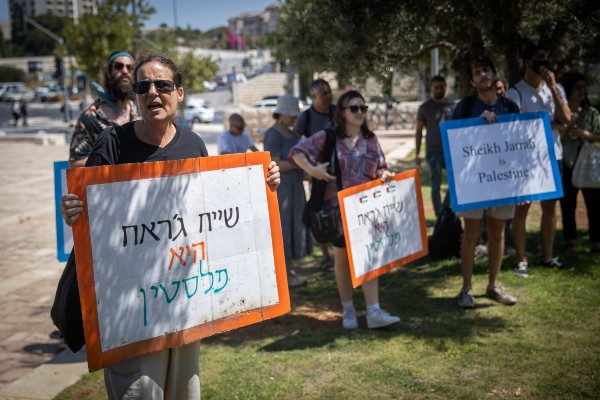The compromise, which may set a legal precedent against the other squatters, is a blow to Hamas and the Palestinian Authority.
By Pesach Benson, United With Israel
One of the Arab families living in the Sheikh Jarrah neighborhood of eastern Jerusalem acknowledged Jewish ownership of the hotly-contested property, Israel Hayom reported.
According to the terms of a compromise, the family, whose name was not disclosed in the report, will not be required to vacate the property for several years but will pay rent and enjoy no special rights.
The family is not party to a legal appeal filed by four other Arab families living in the neighborhood. Those families rejected a proposal by the Supreme Court that would have allowed them to remain on the property as protected tenants while recognizing the Nahalat Shimon organization as the owner and paying a token rent as well as the legal fees.
The four families were said to have been divided on accepting the compromise and faced tremendous pressure from the Palestinian Authority and Hamas not to accept the deal.
“There were extensive discussions. We’ve spent a month talking it over, every single day. Now we’ve reached a decision to reject it,” Abdelfattah Eskafi, one of the Arab squatters, told Hebrew media.
According to Israel Hayom, the fifth family’s separate compromise was given the force of a legal ruling by the Jerusalem Magistrate’s Court. As a result, it could potentially serve as a legal precedent for the other families and short-circuit PA and Hamas interference.
The neighborhood is also known as Shimon HaTzaddik, after the Second Temple High Priest who is buried there. Jews had been living there since the 1890s. In the 1930s, the property at the heart of the controversy was purchased by Nahalat Shimon, an association that developed the land for Yemenite and Sephardic Jews.
During the War of Independence, Jordan captured Jerusalem’s eastern neighborhoods and Jordanian families moved in. Some built new houses on the land in Sheikh Jarrah. The Jordanian Ministry of Housing also appropriated land to build houses for Arabs in the neighborhood.
That changed when Israel reunified Jerusalem during the Six-Day War of 1967. In a legal process that has dragged out for decades, Israel’s Supreme Court ruled in 1982 in favor of the Sephardic Community Committee of Sheikh Jarrah landowners. The ruling cited a 1970 law permitting Jews to reclaim property in eastern Jerusalem if it had been purchased before 1948.
In 2008, the Supreme Court ruled again in favor of Nahalat Shimo, saying that the squatters were required to pay rent.
Successive governments never enforced the Supreme Court ruling. The refusal to evict the families is widely attributed to political pressure and the fear of Arab violence.
